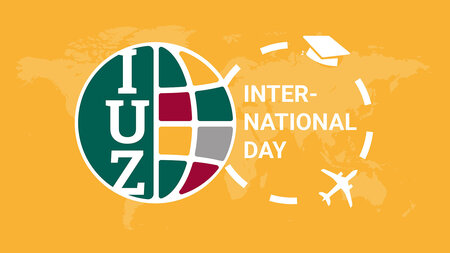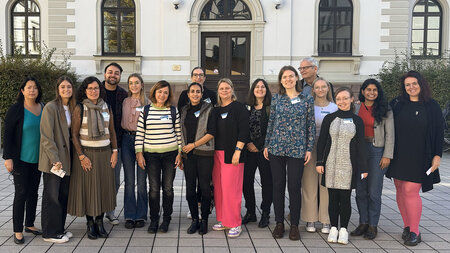Traffic Psychology and Mobility

The Traffic Psychology and Mobility group studies the behaviour of road users and the underlying mental processes, while interacting with distinct transport modes.
Focus is given to characterise the variables capable of influencing the road user behaviour, for all three pillars of the road traffic system, i.e. the road environment (e.g. weather conditions, or road layout at work zones), the vehicle (e.g. presence of in-vehicle systems or type of bicycle used), and the road user (e.g. age, driving experience or sensation seeking level). The relationship between the user behaviour and the occurrence of safety critical situations are an important part of the research developed.
Integrated in the work performed, is the elaboration of ergonomic principles for the transport system, as well as the development of training and guidelines for the promotion of safety and mobility.
The several project conducted in the past years allowed the group to develop expertise in the following topics:
Driving behaviour, behavioural adaptation, driver distraction and inattention, in-vehicle information systems, advanced driver assistance systems, autonomous and semi-autonomous driving, cooperative systems, driver training, elderly drivers, and cycling behaviour.
The Traffic Psychology and Mobility group uses a wide spectrum of quantitative and qualitative methods, combined with a variety of study environments, such as laboratory, driving simulator, and on-road (which includes controlled on-road tests, field operational test or naturalistic studies). An active contribution to the method's development and improvement is also offered by these researchers.
The work is performed in connection with a variety of partners: universities, research institutes, manufacturers, road users' associations and corporation groups. This allows to be updated with the latest developments in terms of research, but also to follow closely the technical progresses boosted by the industry, or the vision of the policy makers. Projects are both national and international in nature (partnerships with EU member states, US and Africa).
The strong contact with the German reality together with the goals set at international level, enhances not only the quality of the research developed, but also the excellence of the academic knowledge transmitted to the students.
Current Projects
-
Box Task Method to assess secondary task demand while driving
Finished Projects
Automated and Interconnected Driving-
SMO-II (01/2022-09/2024) Shuttle model region Oberfranken
-
CRC D02 Implicit Driving Cues (01/2020-06/2024) Detection of Implicit Driving Cues as the Basis for a Proactive Driving Style of Highly Automated Cars
-
UseXS (04/2023-03/2024) User-Experience Autonomous Shuttle
-
Mediator (05/2019-04/2023) MEdiating between Driver and Intelligent Automated Transport Systems on Our Roads
-
CADJapanGermany: HF (09/2019-12/2022) Collaboration with Japanese universities on Human Factors topics in automated driving
-
@City-AF (07/2018-08/2022) Automated driving for the City
-
AutoAkzept (10/2018-03/2021) Automation without Uncertainty to Enhance the Acceptance of Automated and Connected Driving
-
InMotion (10/2017-06/2020) Light-based communication between automated vehicles and other road users
-
Syncar (09/2016-03/2020) Synchronized Automated Driving in Urban Areas
-
KomfoPilot (01/2017-12/2019) Personalized and context-sensitive automated driving style
-
Harmonize DD (04/2017-10/2019) Support of automated driving in mixed traffic
-
ComfyDrive (10/2016-09/2019) Driving style modeling in highly automated driving based on the driver-vehicle-interaction
-
Drive me (02/2015-01/2016) Driving style modeling in highly automated driving based on the driver-vehicle-interaction
-
Information needs at different levels of automation (09/2014-01/2015)
-
ADAPTATION Initial Training Network (01/2010-12/2013)
-
DECOMOBIL (10/2011-10/2014) Developing and widely disseminate knowledge in the area of human centred design of information and communication technologies for sustainable transport
-
Different visual and acoustic warning signals: Performance and acceptance
-
Heuristic evaluation study with experts of different night vision enhancement systems
-
HUMANIST (European Network of Excellence) (03/2004-05/2008)
-
Integration of travel time information on variable message signs (VMS)
-
UR:BAN (04/2012-03/2016)
-
Vifa 65plus (10/2011-9/2014) Visual driver assistance for senior citizens
-
KIRa (05/2019-03/2023) Cooperative interaction between cyclists in automated driving
-
NUMIC (09/2019-08/2022) New urban mobility in Chemnitz
-
DRadEsel Illumination of the dark figure of safety-critical events between cyclists, cyclists and cars, pedestrians and public transport
-
RadimFokus (09/2018-08/2021) Warning- and assistance system regarding cyclists independent of any specific transport mode
-
WIR!-Startprojekt Smarte Mobilitätsketten im ländlichen Raum
-
KIVI (04/2016-04/2019) Cooperative interaction between vulnerable road users in automated driving
-
Route choice of cyclists (05/2017-04/2018) Developement of a methodology for the investigation of the determinants of the route choice of cyclists
-
Helmet use and illegal riding behaviour of e-bike and bicycle riders (07/2015-09/2016)
-
Pedelec Naturalistic Cycling Study (04/2012-04/2014)
-
Speed perception of two wheelers (01/2013-12/2014)
-
Vifa 65plus (10/2011-9/2014) Visual driver assistance for senior citizens
-
Drive me (02/2015-01/2016)
-
Pedelec Naturalistic Cycling Study (04/2012-04/2014)
-
Supporting drivers education with simulators and computer based trainings
-
The use of computer based media and driving simulators in drivers education and testing
-
Frequency of driver distraction (08/2016-01/2018)
-
Driver distraction through texting
-
German NDS pilot (01/2011-12/2013)
-
Methodological aspects of naturalistic driving studies and field operational tests (11/2007-01/2010)
-
Pedelec Naturalistic Cycling Study (04/2012-04/2014)
-
UR:BAN (04/2012-03/2016)
-
UDRIVE (10/2012-06/2017) European Naturalistic Driving Study - acquisition of behaviour of different road users under naturalistic conditions
-
German NDS pilot (01/2011-12/2013)
-
Methodological aspects of naturalistic driving studies and field operational tests (11/2007-01/2010)
-
Pedelec Naturalistic Cycling Study (04/2012-04/2014)
-
Helmet use and illegal riding behaviour of e-bike and bicycle riders (07/2015-09/2016)





